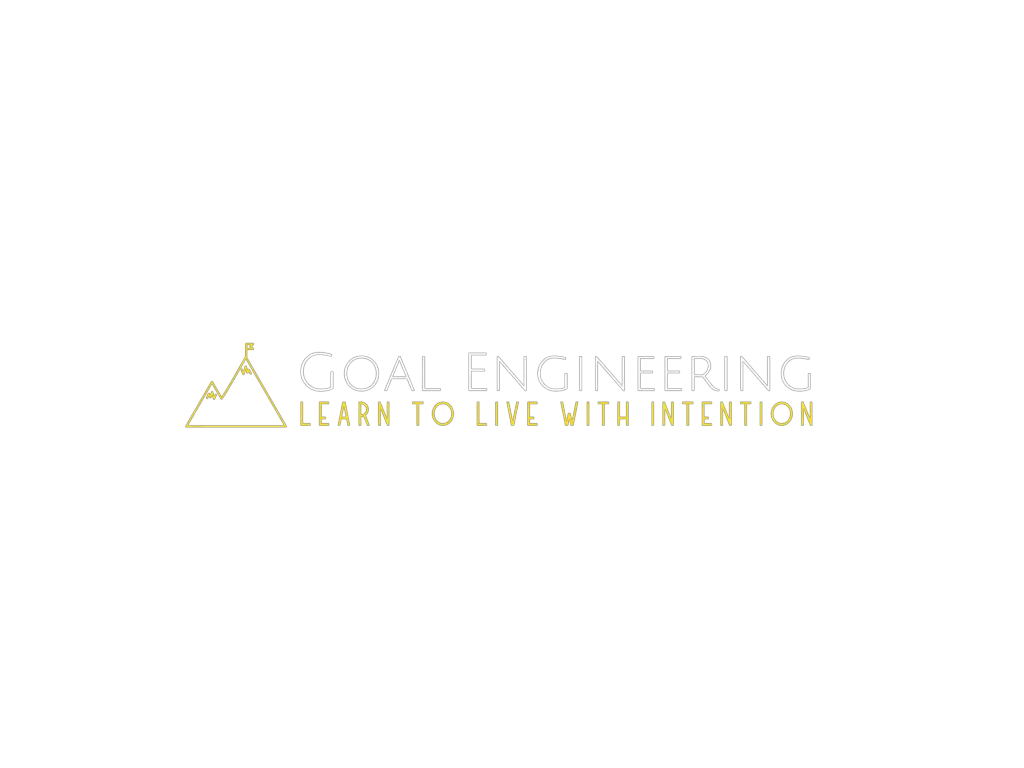You want to achieve big dreams and you have the goals to go with them. But you’re not quite sure you’re on the right track. If you want to succeed, you need to figure out what goal-setting mistakes you might be making and fix them.
The most common mistakes when setting goals include:
- Unrealistic goals
- Not seeking support
- Setting too many goals
- Disregarding your values
- Failing to set specific goals
- Neglecting short-term goals
- Lack of flexibility and balance
- No milestones or tracking progress
- Overemphasis on planning and not enough on action
You could try to fix all of these if you wanted. But I’ve found from my experience with setting goals that if you can figure out just three of them, you’ll set the right goals and be able to achieve them every time.
Let’s get into it!
1. Setting Too Many Goals
“Essentialists see trade-offs as an inherent part of life, not as an inherently negative part of life. Instead of asking, “What do I have to give up?” they ask, “What do I want to go big on?” ― Greg McKeown, Essentialism
To understand why this goal-setting mistake is so detrimental, you need to know a thing or two about fruit trees.
A few years ago we had a peach tree in our yard, which I was excited about because I love peaches. The problem was, the peaches were terrible. Each year they were small, bland, and oddly shaped.
I couldn’t figure out why but thought I might be able to do something about it. So one year at the beginning of the summer I went out there and, having heard you have to thin fruit trees, pulled off a bunch of the young green fruit.
It was sad to see all of those peaches go. But later that summer when I saw what the tree had produced I was glad I’d done it.
Finally, after years, the peaches were larger, sweeter, and actually looked like peaches.
Your goals are like the peaches.
If you have a lot of goals, they won’t turn out great. Like my peaches, you might have a lot, but none of them will get to where you want them to be.
But when you thin your goals to just the ones that matter most, you’ll end up with fulfillment and success.
Setting fewer but better goals to beat this mistake means you only need four goals:
- Spiritual or Mindset
- Relationships
- Intellectual or Finances
- Fitness
Every goal you could set falls into one of these areas anyway. You might as well focus on just the one in each that will make the most impact. Learn more here.
2. Planning Too Much and Not Acting Enough
“I must lose myself in action, lest I wither in despair.” — Alfred Lord Tennyson
I’ve spent too many years overplanning and missing out on goals that I could have achieved If I’d just done less thinking and more doing.
But I think I’ve finally figured out the secret to success.
First, though, let’s consider why overthinking and overplanning is so destructive. It’s been said that you can’t steer a parked car. That means that you can’t go anywhere without starting to move in the first place.
I’ve seen this with dozens of my goals. I spend all this effort to plan new morning routines, take courses, and ask for help, only to see zero progress. That is, until I actually get up and do something.
The thing is though, you can’t just act on your goals for a week and expect results. It takes consistency, over months and years, to win.
Just like a small tree root can destroy a thick, heavy, strong concrete sidewalk after years of consistent growth, you can annihilate your goals in the same way.
But only once you quit planning and thinking about it and just begin.
The big secret to quit overanalyzing and get to work, that I’ve learned through experience, comes in two parts:
- Accept that you’ll never really be ready. The ability to do “on the job learning” is a highly underrated skill and will get you far. There are things you can only learn once you start. So just do it.
- Challenge yourself. You can use a Ulysses Contract, which you can learn about in this article. Or you can try a personal growth challenge, which is what I’m doing now.
Pick a day to start working on your goals and decide on a number of days in a row you want to work on them. You might start with just 30 days at first. Then, see how many days in a row you can stick to your goals.
I’ve found that this works remarkably well because when it gets tough to keep going, you don’t have to wonder whether or not you want to do the work. The streak keeps you going because you don’t want to end up back at day 0 again.
However, it only works if you track your progress.
3. Not Tracking & Reviewing Your Progress Regularly
“When performance is measured, performance improves. When performance is measured and reported back, the rate of improvement accelerates.” — Pearson’s Law
Research is clear on this principle. If you track your goals and track them often, you’re more likely to achieve them than if you don’t record your progress and review it regularly.
It makes sense if you think about it. How are you going to remember your goals if you don’t write them down?
And why would you expect yourself to be able to reach them if you don’t spend time checking in with where you’re at?
When you combine action with tracking you create an upward spiral toward success. If you can figure out how to stay consistent with both of these, you’ll stay on that trajectory for the rest of your life.
This is because action plus tracking gives you crucial data that you can’t get otherwise. You’ll never know how well a goal is going to go until you start, and you can’t get that data and use it unless you write it down.
But once you do start, and when you do set up a tracking system, you’ll know exactly how to modify your goals so that you reach them every time.
To set up your own tracking system, start by just writing your goals in a note on your phone. Then, set aside two times to review your progress:
- Daily, spend just 5 minutes journaling about each goal. Did you complete your action steps? Why or why not? What lessons did you learn that can help you? How could you modify your goals?
- Weekly, take 30-60 minutes to check if you’re heading toward your milestones. Are you reaching your outcomes? If not, how can you modify your action steps to get you where you want to go?
I used to just write a few goals in my journal at the beginning of the year when I was younger but I wasn’t great at tracking my progress. Now, I have a whole system and I’ve stuck to my goals for years.
Let’s Wrap This Up
In summary, the most common goal-setting mistakes include:
- Having unrealistic goals
- Not seeking support
- Setting too many goals at once
- Disregarding your values and setting extrinsic goals
- Failing to set specific, measurable goals
- Neglecting short-term goals
- Lack of flexibility and balance
- Not having milestones or tracking your progress
- Planning too much and not focusing enough on action
If you can solve just three of these, you’ll set better goals and accomplish them more consistently. To do that you’ll need to:
- Set fewer, better goals
- Plan your goals, but focus on action the most
- Set up a tracking system and a time to record and review your progress daily and weekly.





